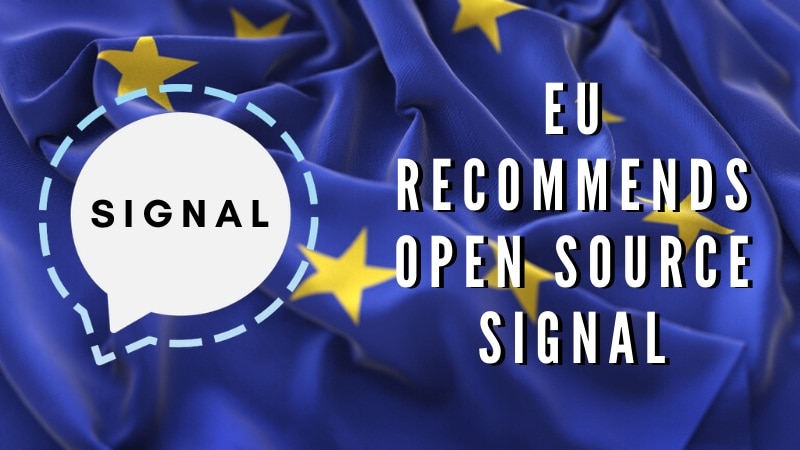In a move to improve the cyber-security, EU has recommended its staff to use open source secure messaging app Signal instead of the popular apps like WhatsApp.
Signal is an open source secure messaging application with end to end encryption. It is praised by the likes of Edward Snowden and other privacy activists, journalists and researchers. We’ve recently covered it in our ‘open source app of the week‘ series.
Signal is in news for good reasons. The European Union Commissions have instructed its staff to use Signal for public instant messaging.
This is part of EU”s new cybersecurity strategy. There has been cases of data leaks and hacking against EU diplomats and thus policy is being put in place to encourage better security practices.
Governments recommending open source technology is a good sign

No matter what the reason is, Government bodies recommending open-source services for better security is definitely a good thing for the open-source community in general.
Politico originally reported this by mentioning that the EU instructed its staff to use Signal as the recommended public instant messaging app:
The instruction appeared on internal messaging boards in early February, notifying employees that “Signal has been selected as the recommended application for public instant messaging.”
The report also mentioned the potential advantage of Signal (which is why the EU is considering using it):
“It’s like Facebook’s WhatsApp and Apple’s iMessage but it’s based on an encryption protocol that’s very innovative,” said Bart Preneel, cryptography expert at the University of Leuven. “Because it’s open-source, you can check what’s happening under the hood,” he added.
Even though they just want to secure their communication or want to prevent high-profile leaks, switching to an open-source solution instead of WhatsApp sounds good to me.
Signal gets a deserving promotion
Even though Signal is a centralized solution that requires a phone number as of now, it is still a no-nonsense open-source messaging app that you may trust.
Privacy enthusiasts already know a lot of services (or alternatives) to keep up with the latest security and privacy threats. However, with the EU Commission recommending it to its staff, Signal will get an indirect promotion for common mobile and desktop users.
Wrapping Up
It is still an irony that some Government bodies hate encrypted solutions while opting to use them for their own requirement.
Nevertheless, it is good progress for open-source services and tech, in general, is recommended as a secure alternative.
What do you think about the EU’s decision on switching to the Signal app for its internal communication? Feel free to let me know your thoughts in the comments below.

